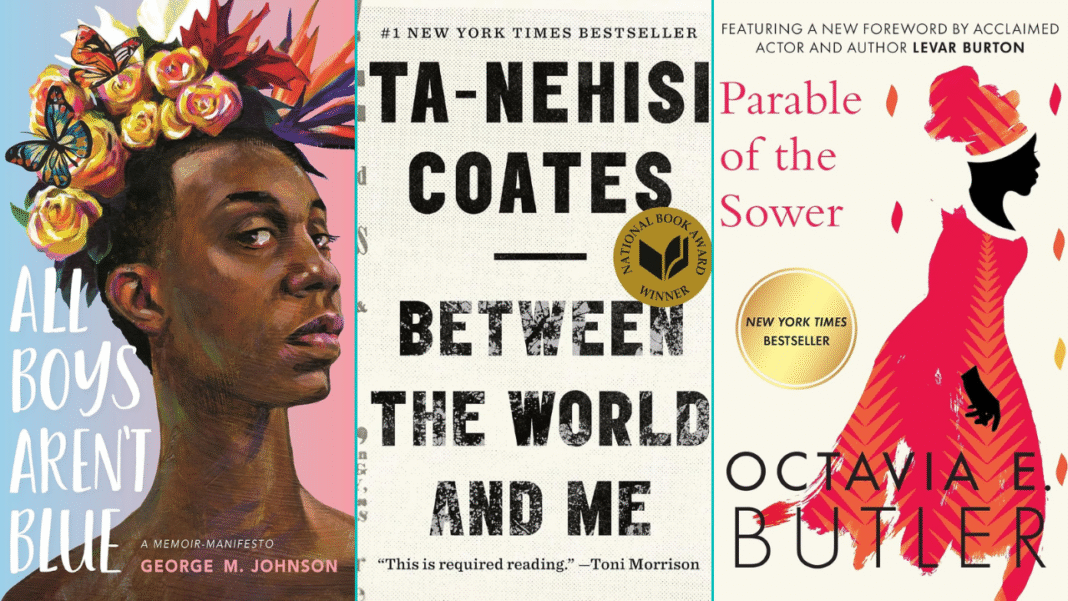The Power of Banned Books: Why We Must Read Them
Every year, Banned Books Week shines a spotlight on stories that some prefer to suppress. As literacy rates in America slip, it becomes increasingly ironic that many impactful works of literature are being removed from shelves. The labels of “banned” or “challenged” books often serve as badges of honor; they indicate that these stories resonate deeply, sparking discussions and exposing uncomfortable truths. In an era when access to historical narratives is under siege, these challenged titles stand as monuments to the enduring power of storytelling.
Why Books Get Banned
Books frequently face bans for various reasons, including their themes, language, or portrayal of sensitive issues. Some critics claim that they prefer to shield certain audiences, particularly children and young adults, from uncomfortable truths. However, as the list of banned books grows, it’s crucial to consider what we lose when we allow censorship to prevail. The works that tend to ruffle feathers often address topics such as race, identity, sexuality, and social justice—subjects that are vital for societal growth and understanding.
The Significance of Reading Banned Books
Reading banned books fosters critical thinking and empathy. Each title represents a unique perspective that can broaden our understanding of the world. In discussing these books openly, we invite dialogue about difficult topics, challenging the status quo. By engaging with diverse viewpoints, readers gain the tools necessary to navigate society’s complexities, rather than retreating into silence.
A List of Essential Banned Books
Here are 16 impactful books that have faced challenges and deserve to be read, revisited, and championed.
1. The Bluest Eye by Toni Morrison
Morrison’s debut novel tackles the devastating impact of racism and colorism on young Black girls. This work remains relevant as it forces readers to confront America’s beauty standards and their consequences.
2. Parable of the Sower by Octavia E. Butler
In Butler’s prophetic tale of climate collapse and inequality, readers witness a dystopian world that feels alarmingly contemporary. This novel challenges our perceptions of resilience and survival.
3. The 1619 Project by Nikole Hannah-Jones
This groundbreaking work reframes American history, spotlighting the pivotal role of slavery and Black Americans. Readers who engage with it find empowerment through its truths, even as critics attempt to dismiss its significance.
4. Homegoing by Yaa Gyasi
Gyasi’s sweeping family saga moves across generations and continents, illustrating the ripple effects of slavery. The interwoven stories provide a profound understanding of history’s impact on contemporary lives.
5. I Know Why the Caged Bird Sings by Maya Angelou
Angelou’s coming-of-age memoir speaks to survival, resilience, and self-expression, remaining equally powerful decades after its initial publication.
6. Monday’s Not Coming by Tiffany D. Jackson
This Young Adult thriller dives into themes of friendship and the systemic silence surrounding missing Black girls, making it both timely and necessary.
7. Chains by Laurie Halse Anderson
Set during the Revolutionary War, Anderson’s historical fiction brings to light the voices of enslaved individuals often erased from America’s founding narratives.
8. Caste: The Origins of Our Discontents by Isabel Wilkerson
Wilkerson’s research connects modern America with historical caste systems in India and Nazi Germany, revealing how deeply ingrained inequalities are maintained.
9. Unbound by Tarana Burke
The founder of the #MeToo movement, Burke shares her powerful personal story, emphasizing that truth-telling can be both healing and revolutionary.
10. Stamped (For Kids) by Jason Reynolds and Ibram X. Kendi
An accessible adaptation designed for young readers, this book equips them with the tools to recognize and dismantle racism in their own lives.
11. Go Tell It on the Mountain by James Baldwin
Baldwin’s semi-autobiographical novel explores themes of religion, family, and identity in Black America, remaining resonant and insightful today.
12. Between the World and Me by Ta-Nehisi Coates
Written as a letter to his son, Coates offers a poignant commentary on the beauty and challenges of Black identity in America.
13. This Is My America by Kim Johnson
A gripping narrative that interweaves themes of mass incarceration and racial injustice, this YA novel represents a powerful exploration of a young girl’s determination.
14. Ghost Boys by Jewell Parker Rhodes
Rhodes provides a compelling narrative about racial violence through the experience of a young Black boy who is killed by police, sparking crucial conversations about empathy.
15. All Boys Aren’t Blue by George M. Johnson
In this memoir-manifesto, Johnson addresses Black queer identity with vulnerability and courage, challenging norms and breaking barriers.
16. The Black Friend by Frederick Joseph
Joseph’s work serves as a guide for young readers, encouraging them to confront racism and envision better futures for all.
The Urgency of Reading Banned Books
Banning these essential texts won’t erase the truths they contain; instead, it amplifies their urgency. It is imperative for communities to stand against censorship, ensuring that diverse stories are heard and preserved. The act of reading is a form of resistance, and through these narratives, we cultivate empathy, understanding, and critical discourse, making us better equipped to navigate the complex landscape of our world.



